
The City and Its Prey
In his monumental novel, Berlin Alexanderplatz, psychiatrist and aesthetic contrarian Alfred Döblin captured the Weimar Berlin that he knew from his patients.


In his monumental novel, Berlin Alexanderplatz, psychiatrist and aesthetic contrarian Alfred Döblin captured the Weimar Berlin that he knew from his patients.
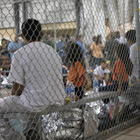
Trump’s new zero-tolerance immigration policy, which separates parents from their children, is a cruel strategy to curb the flow of immigrants and asylum-seekers arriving in the United States. Here’s why it’s bound to fail.
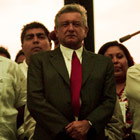
Andrés Manuel López Obrador no es el demagogo que imaginan sus adversarios. Si se convierte en el próximo presidente de México, la pregunta más relevante es: ¿podrá llevar a cabo los cambios que el país requiere?

The revolutionary fervor of May ’68 didn’t end with a general strike. It fueled radical demands for years to come, and brought new causes into the mainstream—not least of them LGBT rights.

In our fully globalized world, Marx’s ideas still conform to a deeply felt sense about what capital does to our labor.

Marx’s social-democratic critics recognized a fundamental point that the great economist missed: that a better world was not inevitable, but achievable, and that their job was to bring that world into being through politics.

The blaze that killed a Trump Tower resident in early April recalls a long of history of developers and corporations putting profit over safety—an ethos that informs not only Trump’s business but his presidency.

Fifty years ago, British politician Enoch Powell set the template for a racist neoliberal populism that has reached its apotheosis today.

Essential to understanding Trump is his attempt to subject the public to his own solipsistic reality—and thereby destroy our shared basis for democracy.
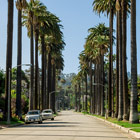
Housing debates have long been a mess of ideological contradictions. A far-reaching new bill in California, which would allow for denser construction in areas served by transit, begins to unscramble them.

Walking off the job for the first time in nearly thirty years, West Virginia teachers are channeling the spirit of their state’s historic, militant labor movement.

A provision of the GOP tax bill opened parts of Alaska’s majestic Arctic National Wildlife Refuge (ANWR) to oil drilling. The conservationists who created the refuge could have seen it coming.
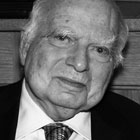
A New Left veteran who navigated the streets of 1968 and Henry Kissinger’s Harvard alike, Norman Birnbaum remains a uniquely searching voice of the democratic left.

Too often forgotten, the February 1968 killing of three student protesters by state troopers in Orangeburg, South Carolina marked a turning point in the black freedom struggle.
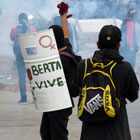
Facing widespread charges of a stolen election, Honduran President Juan Orlando Hernández began his second term Saturday with a brutal show of force against protesters. Can the opposition overcome increasingly deadly repression?